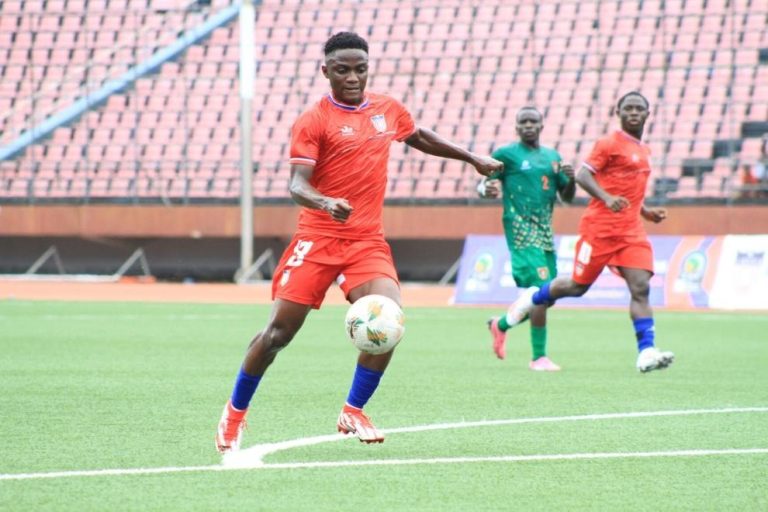Home » Liberia Football Club Sanctions Could Impact Upcoming Season

Liberia Football Club Sanctions Could Impact Upcoming Season
With the upcoming Liberian football season, the First Instant Board of the Liberia Football Association has imposed strict regulations for clubs’ participation in the domestic league in accordance with the regulations of the Confederation of African Football (CAF). A number of clubs have been placed under sanctions due to their failure to comply, and such a situation may affect their participatory role in the 2024/25 season. This development gives meaning to compliance by organizations in African football and how teams progress.
Why Liberia Football Club Sanctions Matter
The announcement of possible sanctions on the football clubs in Liberia is sending shockwaves across the sports community. Football is a source of pride and a contributor in the social and cultural life of Liberia. It is upon the football clubs to take the responsibility for ensuring the upholding of the regulations, as part of developing the quality and professionalism of the sport. The season indeed comes with lots of expectations, and sanctions might prevent several high-profile teams from participating; this would certainly have an impact on both the fans and the sponsors alike.
Some clubs are in the line of fire as the Liberia Football Association, LFA, slaps sanctions on some over an issue of non-compliance with CAF regulations that could dramatically change the face of Liberian football. Cllr. Jacob K. Dayrell Sr., chairman of the FIB, warned that the clubs’ failure to meet requirements puts their participation at risk. The LFA, in compliance with CAF’s stringent standards, is enforcing the rules to maintain transparency and excellence in the league.
The Scope of the Liberia Football Club Sanctions
Clubs in violation include top-tier teams such as LPRC Oilers, Heaven Eleven, Mighty Barrolle, and Invincible Eleven, while second division outfits like Margibi FC and Cece United have also been named. According to Cllr. Dayrell, documentation issues are at the heart of the problem.
These are issues that range from incomplete registration of players to failures in financial documentation, as explicitly required by the CAF regulations for club participation in both local and international levels of competitions.
While these clubs face the risk of a ban from competing come the 2024/25 season, for now, they have been given a six-month reprieve to get their documents in order.
Implications of Liberia Football Club Sanctions
Sanctions can have long-lasting consequences for the clubs involved. Failure to compete may mean financial losses as a result of sponsors and supporters shying away from investing in such clubs. Secondly, clubs which possibly may not fulfill the requirements as stipulated by CAF run the risk of not being allowed to participate in continental competitions. This will reduce their chances of advancing, besides denying players much-needed exposure. The penalties will ultimately destroy the level of confidence between club management and their respective fan bases.
Moreover, sanctions could erode the trust between club management and their fan bases. The fans are important stakeholders, and sometimes a club’s exclusion from competition may result in concomitant issues with lost credibility. The fans expect their clubs to set high professional standards. This will lead to financial and emotional withdrawal due to degraded support.
A Call to Action for Non-Compliant Clubs
Cllr. Dayrell emphasized the importance of the upcoming meeting with non-compliant clubs. During this meeting, clubs will have the opportunity to explain why they have not met the prescribed standards and present their plans for compliance. The FIB’s approach of giving clubs the chance to rectify their errors is a measured and fair process that balances enforcement with an opportunity for clubs to improve.
This is not just about punishing clubs but about elevating the entire standard of Liberian football. The clubs now have a crucial six-month window to align with the required standards. Failure to do so will not only result in sanctions but could also set them back in terms of their long-term development goals.
Conclusion: The Future of Liberian Football
The sanctions facing Liberia’s football clubs should serve as a wake-up call to all teams participating in professional leagues. The LFA’s move, in line with CAF regulations, is designed to improve the quality and professionalism of Liberian football. Compliance is not just a box to tick; it’s about ensuring that clubs are equipped to compete at the highest level and represent Liberia on both local and international stages.
The upcoming season will be a crucial test for these clubs, and the next six months will determine their future participation. While some clubs have already risen to the challenge and met the necessary requirements, others must now follow suit to avoid the dire consequences of non-compliance.
